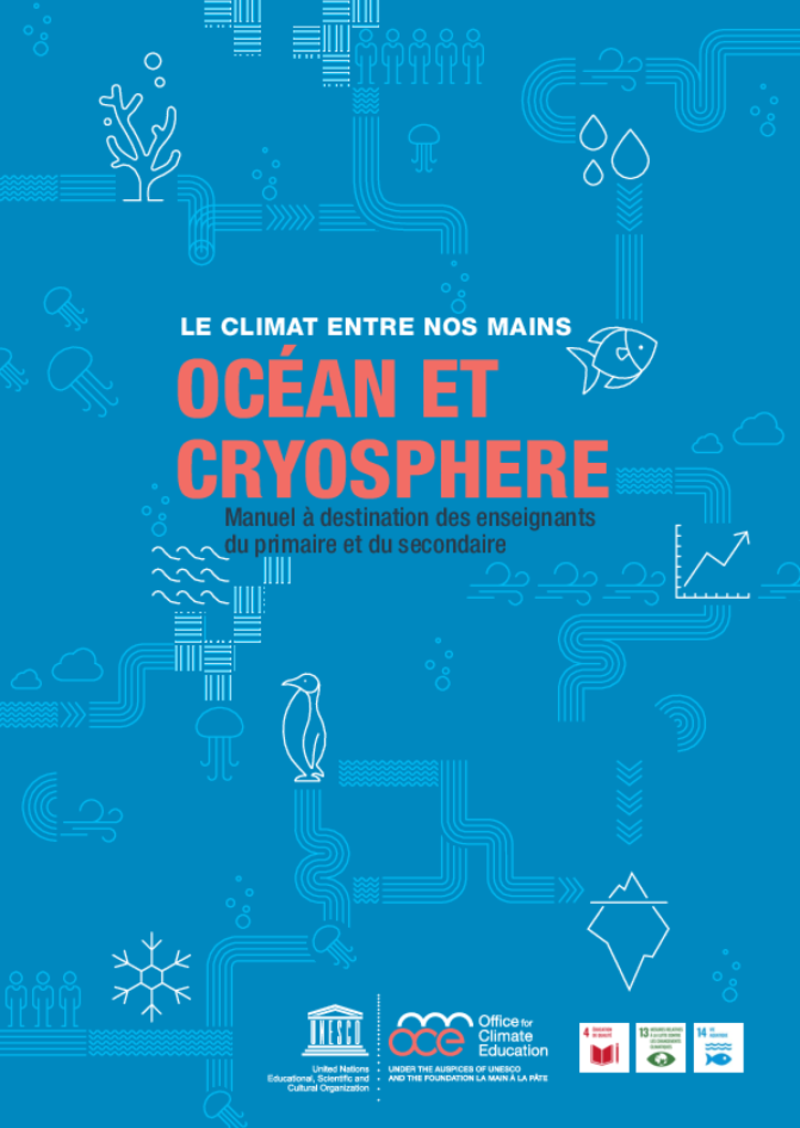Teacher Resource Centre
Displaying 1 - 3 of 3
Le Climat Entre Nos Mains - Océan et Cryosphère, Manuel à destination des enseignants du primaire et du secondaire
Ce manuel de l’Office for Climate Education (OCE) aide les enseignants à aborder le changement climatique, les océans et la cryosphère avec des élèves de 9 à 15 ans. Il propose des éclairages scientifiques, des plans de cours, des activités et des ressources multimédia. Interdisciplinaire, il inclut des leçons en SVT, sciences sociales, arts visuels et éducation physique, et utilise des méthodes pédagogiques actives comme l’investigation, le jeu de rôles et le débat. Divisé en deux parties, "Comprendre" et "Agir", il permet aux élèves de comprendre les impacts du changement climatique et de participer à des projets concrets pour atténuer ses effets.
Differentiated Instruction in Displacement Contexts. Workshops Facilitation Guide
In this guide, there are prompts to support exploration of the content and application to the local context. There are also tips to support educators as they make space and time for professional learning within their busy and, often, stressful lives. Finally, this guide offers some advice regarding online, and/or other technological aspects, of this training.
The Quality Holistic Learning Project (QHL), of which this face-to-face workshop is one element, aims to prepare educators to deliver high-quality lessons which support holistic learning for children and youths of diverse backgrounds (refugee, migrant, and/or citizen) within host country, displacement, and crisis contexts. They define quality holistic learning as that which attends to:
- academic, cognitive, and identity development,
- social and emotional learning, and
- mental/psychosocial and physical well-being and which delivers: positive schooling experiences, ● feelings of belonging and safety, growth and development, and equitable outcomes for all learners.
Introduction to Asset Based Pedagogies in Displacement Contexts Workshops Facilitation Guide
This manual is intended to support the delivery of one full day workshop on the topic of supporting Quality Holistic Learning in crisis contexts through the implementation of asset-based pedagogical tools and activities and through sustaining safe and secure learning spaces. The workshops are the result of the insightful contributions of a committed team of teachers and educators from Kenya, Lebanon, and Niger.
The Quality Holistic Learning Project (QHL), of which this face-to-face workshop is one element, aims to prepare educators to deliver high-quality lessons which support holistic learning for children and youths of diverse backgrounds (refugee, migrant, and/or citizen) within host country, displacement, and crisis contexts. We define quality holistic learning as that which attends to:
- academic, cognitive, and identity development,
- social and emotional learning, and
- mental/psychosocial and physical well-being and which delivers: positive schooling experiences, feelings of belonging and safety, growth and development, and equitable outcomes for all learners.


